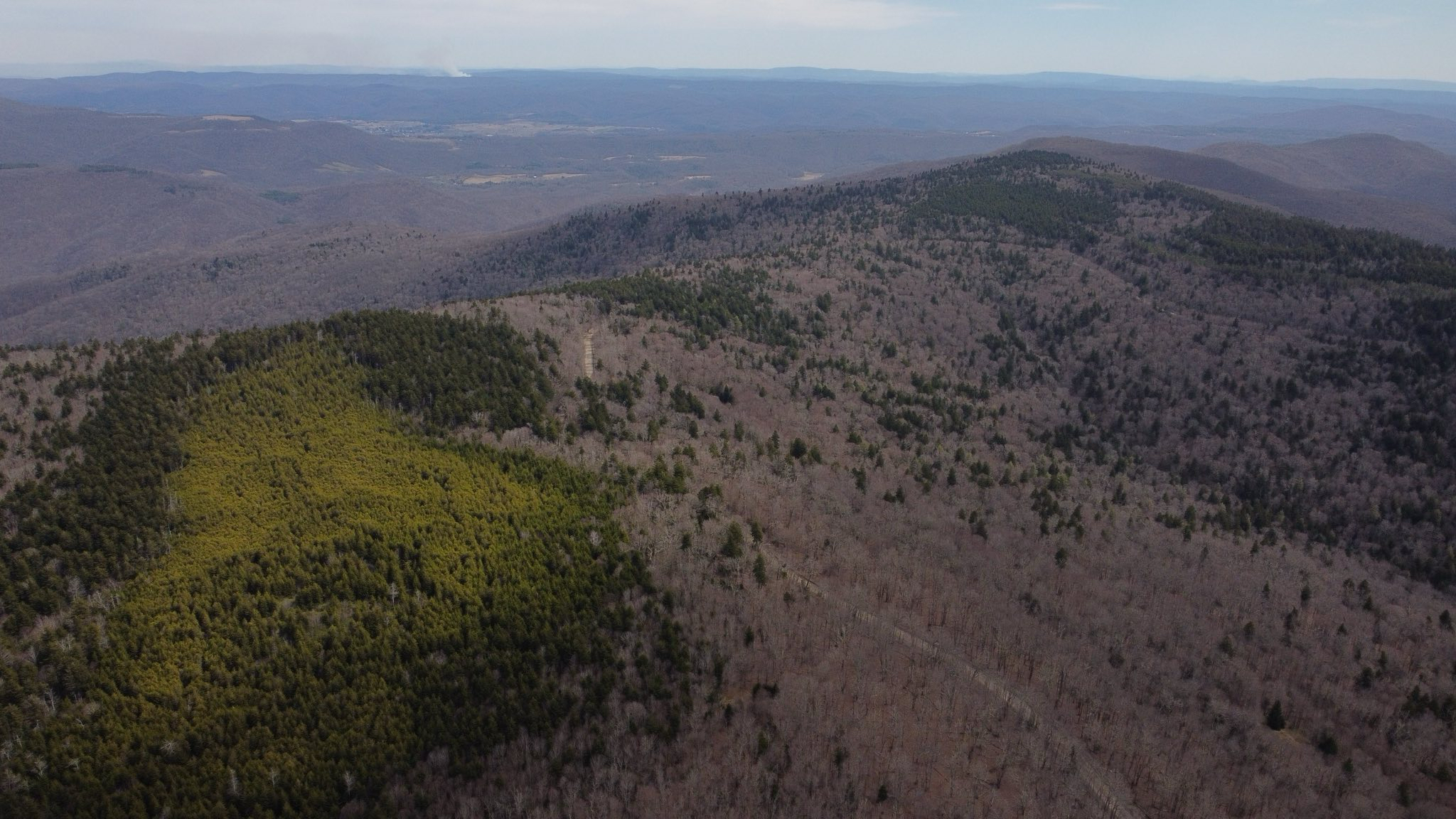
Today, the Office of Surface Mining Reclamation and Enforcement determined that a bankrupt coal company with a long history of regulatory violations has the right to haul coal through the Monongahela National Forest in West Virginia.
Richmond, Virginia-based South Fork Coal Company — which declared bankruptcy in February — has been using both private and U.S. Forest Service roads to haul coal and equipment through the Monongahela National Forest in Greenbrier County since opening its Rocky Run Surface Mine in 2022. In recent years, conservation groups have brought numerous lawsuits and administrative complaints against the company and regulatory agencies, bringing to light hundreds of violations of federal environmental laws related to the existence and operation of “Haulroad #2” in the Monongahela National Forest, as well as water pollution and mine clean up problems across the company’s 3,600 acres of mining operations.
Coal mining and related activities are illegal in national forests in the eastern United States, with three narrow exceptions. One such exception exists when the Office of Surface Mining Reclamation and Enforcement determines that a mining company held “valid existing rights” to conduct mining operations prior to the passage of the Surface Mining Control and Reclamation Act in 1977. South Fork Coal Company did not exist at this time, and does not satisfy the requirements for a valid existing rights determination. Despite this, the Office of Surface Mining Reclamation and Enforcement is granting the company an exception to the ban on mining activity in eastern national forests.
The agency claims that South Fork Coal qualifies for this determination because the Forest Service granted the company authorization to use Forest Service roads 223 and 249 in 2021. But this was done without conducting environmental and endangered species impact reviews required under the National Environmental Policy Act and the Endangered Species Act — oversights that prompted the Center for Biological Diversity, representing itself and six other organizations, to sue the Forest Service in 2023 for improperly granting the company road use authorization. That litigation is ongoing.
Additionally, on July 14, 2025 the Allegheny-Blue Ridge Alliance filed an administrative complaint with the Office of Surface Mining Reclamation and Enforcement alleging that the state mining permit for Haulroad #2 was granted improperly, as South Fork Coal Company had explicitly stated that Haulroad #2 would not enter the national forest in its permit application. Whether this claim was made in error or with full knowledge of its inaccuracy, it is false.
In June and December of 2024, conservation groups complained to then head of the Office of Surface Mining Reclamation and Enforcement, Sharon Buccino about South Fork’s unlawful operations within the national forest, prompting the agency to shut down Haulroad #2 in January 2025, but by February the company had appealed this decision and coal-hauling in the Monongahela National Forest was allowed to continue.
Appalachian Voices and the West Virginia Highlands Conservancy, represented by Appalachian Mountain Advocates, sued South Fork in December 2024 over more than 80 violations of the Clean Water Act and Surface Mining Control and Reclamation Act. The lawsuit points to the company’s own data which show that it has released toxic levels of certain metals as much as 900% of the legal limits into the Cherry River. The Cherry River originates in the Monongahela National Forest near the popular hiking areas of Cranberry Glades and Falls of Hills Creek. It is home to the endangered candy darter and is also a well-known destination for trout fishing. The river flows into Summersville Lake and the Gauley River National Recreation Area, which are major tourist attractions and economic engines for southern West Virginia.
“This is a sad day for West Virginia’s public lands and everyone who cherishes them: for the communities who rely on clean headwater streams for drinking water and recreation, for the forests that give us clean air, and for the endangered species that depend on the cold, clear waters of the Gauley River watershed,” said Olivia Miller, program director at the West Virginia Highlands Conservancy. “The destruction being caused by South Fork Coal is reckless and irreversible. The Monongahela National Forest is supposed to be protected by law from strip mining activity, and we will not stand by while these protections are sidestepped to serve the interests of a single, greedy coal company. The West Virginia Highlands Conservancy and our 3,000 members and supporters will fight to overturn this decision and defend our forest from those who seek only to exploit and pollute, no matter the cost to the rest of us.”
“This is an indefensible move by the OSMRE,” said Willie Dodson, Coal Impacts Program Manager at Appalachian Voices. “The Forest Service allowed the company to operate inside the national forest in violation of NEPA and the Endangered Species Act, and now the OSMRE is pointing to that decision — which is currently being litigated — as justification for giving this renegade coal company its blessing to abuse our national forest. On top of this, South Fork’s state permit for Haulroad #2 was based on the assertion that the operation would not enter the national forest, a claim that all parties now acknowledge to be false. These agencies are bending over backwards to enable a mismanaged, bankrupt coal company, with a truly shocking history of environmental violations, to abuse our public land.”
“OSMRE just rewrote 50 years of coal mining law to suit one coal company, setting a dangerous precedent for all of our national forests,” said Andrew Young, Staff Attorney at the Allegheny-Blue Ridge Alliance. “This decision encourages coal companies to break the law first and ask forgiveness later, risking permanent harm to our most cherished public lands. But the law and the facts are overwhelmingly on our side, and the Allegheny-Blue Ridge Alliance is planning to appeal. We intend to win because our public lands are too precious to let coal companies rewrite the rules.”

